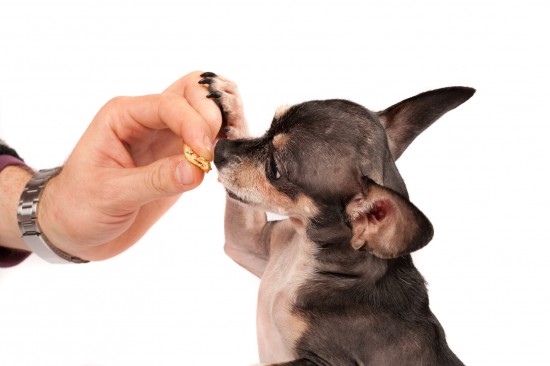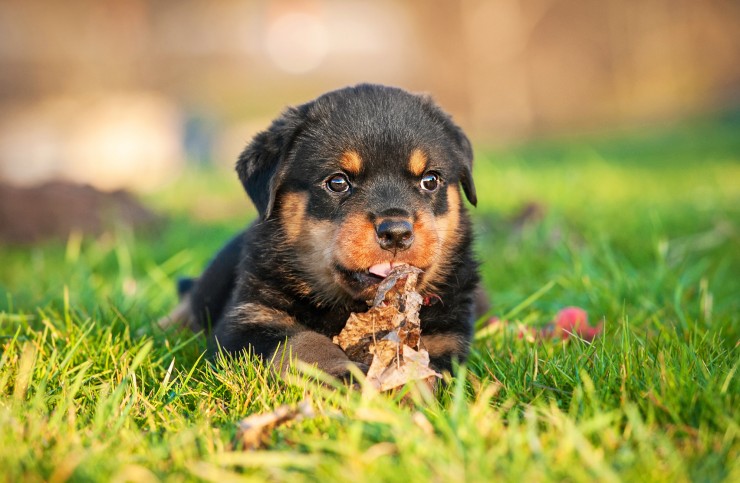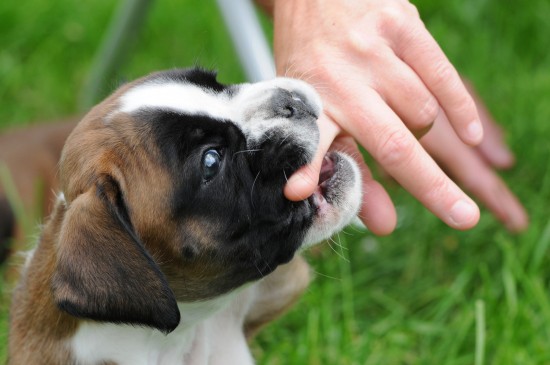
Canines that urinate submissively often cause an embarrassing and frustrating (not to mention messy) problem for their owners. But it is critical that owners remain patient with their pets when discouraging the habit. Anger, yelling, and other forms of punishment usually do more harm than good. In some cases, such a response can actually reinforce the habit.
In this article, we'll explain the causes of submissive urination. Knowing why it happens is the first step toward helping your dog avoid recurrences in the future. We'll also offer a few suggestions that will help you correct the problem.
Why Dogs Urinate Due To Submission
To understand why canines urinate submissively, it is important to understand how they behave in the wild. Dogs are pack animals, and learn quickly to conform to the ranking hierarchy within their respective packs. Conformation involves knowing which animals have higher status than them.
In order to avoid confrontations with others in the pack, canines show respect to those of higher rank. They do so by using a few different methods. They roll on their backs and show their stomachs; they avoid direct eye contact; and they urinate.
Often, when a canine confronts another animal it perceives to be a potential threat, it behaves according to its learned social cues. It displays submissiveness to show the other animal it accepts its higher rank. Understanding this dynamic is essential to appreciating how many owners actually encourage submissive urination in their pets.
How Owners Unwittingly Encourage The Tendency
When a canine urinates to show deference to another animal or person, his owner may attempt to console him. He or she may lavish attention on the dog, including petting and providing treats. This reaction is meant to make the pet feel more comfortable. In reality, it reinforces the idea in his mind that submissive urination is desirable, and likely to result in attention and treats in the future. Consequently, he is more likely to engage in the behavior.
Is The Problem Due To A Medical Issue?
It's important to have your canine's veterinarian examine your pet to ensure the urination problem is not due to an internal disorder. If an illness or infection is discovered, the vet can suggest treatment options. These options may include medications, surgical procedures, and other measures that can help your dog overcome physiological factors that are affecting his bladder control. If the veterinarian finds no signs of internal problems, you can address your pet's behavior at home.
How To Minimize Your Pet's Submissive Urination
Treating this issue involves a two-pronged approach. First, because submissive urination often stems from a lack of confidence, you'll need to focus on building your pet's confidence. Second, identify the circumstances under which your dog has engaged in the activity in the past. You'll need to avoid duplicating those conditions.
For example, if you notice he urinates when you bend over his head, stop doing so. Kneel or sit on the floor so you are nearer his level. If he urinates when you look at him directly, avoid direct eye contact. By eliminating - or, at least minimizing - the conditions that have become reinforced in his mind as warranting submissive urination, you'll have more success in modifying the behavior.
To improve your pet's confidence level, take him to public places (e.g. parks), where he will enjoy exposure to a wide range of animals and people. Enroll him into professional training classes that emphasize positive reinforcement. This, too, will give him valuable exposure to others that will slowly make him more confident.
Realize that submissive urination, while frustrating, is "curable." If you have a puppy that does it, he will likely outgrow the habit within a year. If your adult dog does it, be patient and help him gain the confidence he needs to avoid accidents down the road. Doing so will improve the bond you share with your canine, and make him a better companion.
 How To Mentally Challenge Your Dog
How To Mentally C
How To Mentally Challenge Your Dog
How To Mentally C
 Foot Corns In Greyhounds, Lurchers And Whippets
Foot Corns In Gre
Foot Corns In Greyhounds, Lurchers And Whippets
Foot Corns In Gre
 Five Universal Personality Traits Of The Rottweiler
Five Universal Pe
Five Universal Personality Traits Of The Rottweiler
Five Universal Pe
 Puppies And The Nipping Stage Of Development
Puppies And The N
Puppies And The Nipping Stage Of Development
Puppies And The N
 Coping With The Death Of A Pet
Coping With The D
Coping With The Death Of A Pet
Coping With The D
Copyright © 2005-2016 Pet Information All Rights Reserved
Contact us: www162date@outlook.com